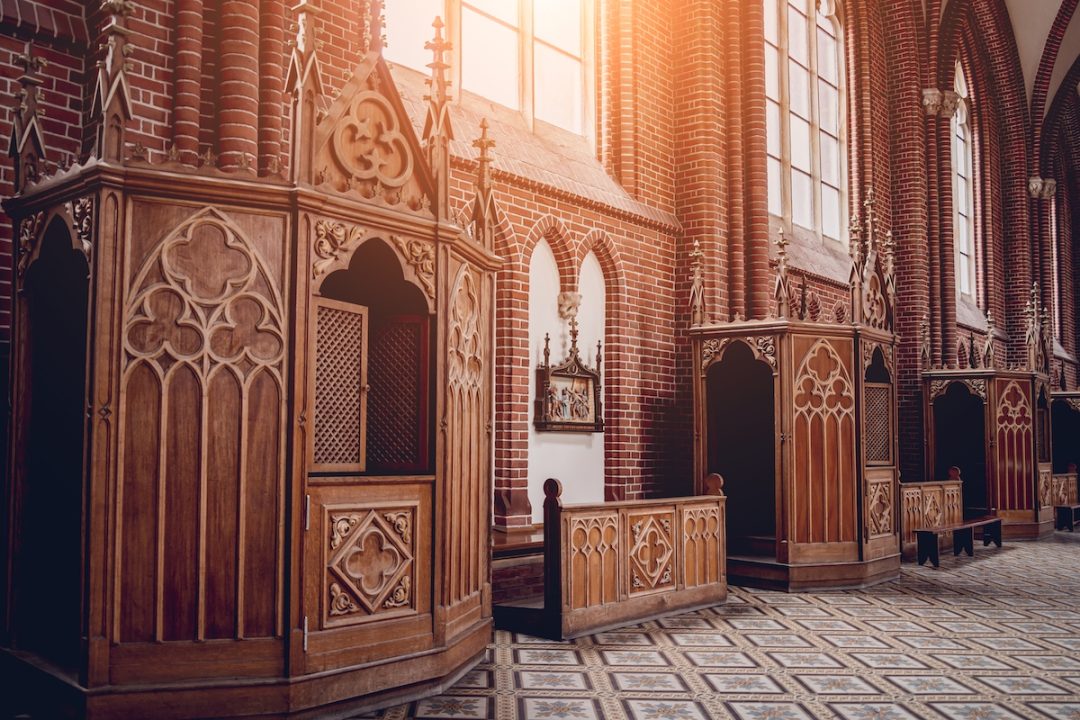
“‘We must obey God rather than men.’” So said Seattle Archbishop Paul Etienne, quoting the Bible, while explaining why priests will go to prison before complying with a new Washington state law. The issue?
The law requires clergymen to report acts of child abuse revealed during Confession. The problem?
Among other things, Catholic Church Canon Law forbids a priest from breaking the “seal of Confession.” The penalty for doing so is excommunication, which a sincere priest would fear more than any worldly punishment. It is such a serious matter, too, because Confession is one of seven Sacraments in Catholic belief. And the Sacraments are believed to have been established by God. They are thus nonnegotiable.
So what Washington’s government has done is set up a classic church vs. state battle — one it’s destined to lose. As law professor Jonathan Turley noted, after all, the law is unconstitutional on its face.
There’s a kicker here, too. While clergy are now subject to the abuse-disclosure requirement, Washington doesn’t demand the same of lawyers. So what gives? Is the lawyer class the “the new priesthood”? This is, an ardent film buff may note, what the Satan character proclaimed in the 1997 film The Devil’s Advocate. Is this the side Washington politicians are now taking?
First Amendment Last in Olympia?
Of course, all good people want to protect children from abuse. Yet leftists take a rather schizophrenic stance regarding this. After all, the Left has for a long time been working to inure people to adult-child relations. (Who do you think has been trying to rebrand pedophiles as MAPs, minor-attracted people?) Nonetheless, when liberals can purport to be protecting kids by trampling religious liberties, many are there with (Hell’s?) bells on. As to this, OPB.org provides some background on the Washington law, writing:
Earlier this month [May 2], Washington Gov. Bob Ferguson signed a bill into law that now requires clergy to be mandatory reporters of child abuse or neglect. Under SB 5375, clergy in Washington must report suspected abuse or neglect to authorities even if they learn of it during so-called penitential communications, such as confessions. The bill was first introduced in 2023….
The law takes effect July 27, barring judicial intervention during the interim.
Catholic Church: The Law Is DOA
Yet whatever the courts do, Catholic officials have made clear that the law is a non-starter. As The New American wrote last Friday, outlining clergy reaction, Archbishop Etienne of the Seattle Archdiocese
explained that priests cannot obey this law, citing the Acts of the Apostles.
“After the apostles were arrested and thrown into jail for preaching the name of Jesus Christ, St. Peter responds to the Sanhedrin: ‘We must obey God rather than men,’” (Acts 5:29) Etienne said:
This is our stance now in the face of this new law. Catholic clergy may not violate the seal of confession — or they will be excommunicated from the Church. All Catholics must know and be assured that their confessions remain sacred, secure, confidential and protected by the law of the Church.
The archbishop said the state was “specifically targeting religious conduct” by “requiring priests to violate an essential element of the rite, the confidential communication between the priest and penitent in which the absolution of sin is offered.”
Father Thomas Nathe, of the Holy Redeemer Catholic Church in Vancouver, Washington, sounded an equally principled note. Reporting on his reaction to the law’s requirement that priests violate confessional confidentiality, Fox 12 writes:
“No, no state has that authority,” he said. “They do not have the authority to stop mass, they don’t have the authority to stop anyone from proclaiming the truth of Jesus Christ. They can threaten to execute us and that doesn’t mean we will observe those laws.”
The DOA Law Will Be Slain by Judges
In reality, priests won’t have to worry about punishment, yet, because the Washington law will be washed out in court. (This will almost assuredly happen before even reaching the Supreme Court level.) For it is completely contrary to our traditional understanding of the First Amendment’s Establishment Clause and relevant judicial precedent.
Moreover, though the “separation of church and state” is not in our Constitution (it is in the 1936 Soviet constitution), the Washington law is precisely the kind of governmental usurpation of church power any legitimate conception of “separation” proscribes. On a relevant historical note, many know how notoriously corrupt some medieval bishops and even popes were. But few know why:
They were chosen by the government.
To be precise, these prelates and other clergymen were picked by the nobility, yielding some rather ignoble results. This led to history’s ultimate church vs. state battle: the “Investiture Controversy.” This conflict, which peaked in the 11th and 12th centuries, website History And Culture informs,
was one of the most significant power struggles of the medieval era, pitting the Pope against secular rulers in a fierce battle over who had the right to appoint and invest bishops and abbots.
The Church eventually prevailed, of course, thankfully — as it will in the Washington case. Yet the point is, any legitimate “wall of separation” only keeps government out of religion, not religion out of government. (Thus did the Founding Fathers open the very first Congress, in 1789, with Christian prayers.)
Physician, Heal Thyself
One more relevant point: Some anti-theists may defend the Washington law, claiming the Church has a “pedophilia” problem. In reality, though, most Catholic clergy abuse cases originated before 1990 precisely because the Church addressed the issue. In contrast and as a federally funded study showed, the government-school child-sex-abuse problem is 100 times the Church scandal’s magnitude — and is still ongoing.
Add to the this that Washington actually facilitates the child abuse known as youth “transgenderism,” and something becomes clear. State officials ought to take the log out of the government’s eye before worrying about the speck in the church’s.




